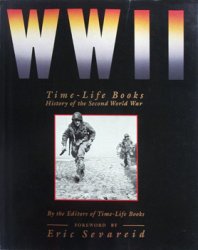[memoria]... quanta divinitas illa, nisi in hoc lumen orandi extulisset. non enim rerum modo sed etiam verborum ordinem praestat, nec ea pauca contexit sed durat prope in infinitum, et in longissimis actionibus prius audiendi patientia quam memoriae fides deficit. (Quintilian, Institutio Oratoria 11.2.7-8; tr. H. Butler 1920)
It is memory that has brought oratory to its present position of glory. For it provides the orator not merely with the order of his thoughts, but even of his words, nor is its power limited to stringing merely a few words together; its capacity for endurance is inexhaustible, and even in the longest pleadings the patience of the audience flags long before the memory of the speaker.
Imagine a lawyer, politician, or news anchor without notes or a teleprompter. None of them would survive today, because we are no longer formally trained to memorize, unless, of course, we become entertainers. Nor do we have to remember what has been said, when we can look at a videotape or consult an online newspaper. Before the advent of our wonderful artificial methods of recording, the only obvious means for recall was human memory. Even if you wanted to recall a particular literary passage in a work you owned, you would rely on your memory, because no other simpler means was available to find the individual word, the specific line, or an entire passage, when texts were generally without interior markings to indicate sentences, paragraphs, pages, lines, etc. As a result, over the centuries various techniques were invented to improve human memory and most of them first appeared in classical antiquity, even if they were further refined in much later eras (Yates 1966; Carruthers 1990; Small 1997). Moreover, the art of memory, or mnemotechnics, applied not just to memorizing the facts in a law case or written speeches, but also to their composition. Memory was a multifaceted tool.
The ancient sources agree that Simonides of Ceos (c. 556-468 bce) invented mnemotechnics (Cic. De Or. 2.353-4; Quint. Inst. 11.2.11-17). The timing of the invention is important. Two things happened in the early fifth century BCE that
Affected the way the Greeks viewed memory. Because the number of written words had reached an unwieldy amount, changes in dealing with them had to occur. There were simply too many words with which to cope without some kind of improved retrieval system. Second, with writing comes the concept of a fixed text that must be repeated word for word - a phenomenon that made a poet a natural as an inventor of a system for memorization. He had to have a good memory, because he still recited his works orally. Yet, unlike earlier oral singers, like Homer, he did not compose anew for each performance, but delivered the text he had written ahead of time. At the same time the need for a good memory became apparent in other aspects of classical society: speeches were made to the populace, cases needed to be argued in the law courts, and actors had to know their lines.
As a result, the most highly educated people in antiquity learned mnemotechnics as part of their rhetorical training. Although no ancient text on rhetoric omitted reference to memory, memory itself did not become a formal division of rhetoric until some time in the Hellenistic period, probably in the late second century bce. This fact is terribly important, because it has often been maintained that increasing literacy meant less rather than more reliance on memory. If that were the case, then training in mnemotechnics would have disappeared from the curriculum rather than being given a greater role in education. The Muses, the daughters of Mnemosyne (Memory), would have slowly faded in importance instead of becoming more and more important (Small 1997: 72-8). Instead both the Greeks and the Romans continually refined and added to their techniques for improving memory. Here I discuss only the Roman methods. The Roman orator needed to remember two kinds of thing, sometimes simultaneously: the exact words that he had to say and a list of items, such as the topics of his speech or the facts of a case, all in the right order.




 World History
World History









